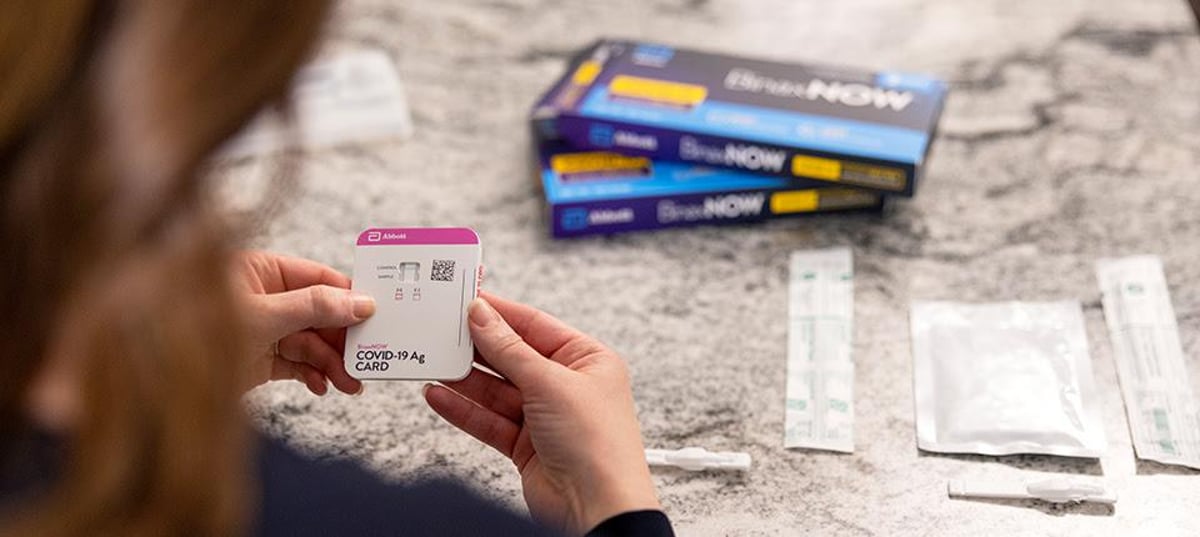Home COVID-19 Tests Can Cause Harm If Not Stored Safely: FDA

TUESDAY, March 22, 2022 (HealthDay News) -- At-home COVID-19 tests can cause harm if they are not used according to the manufacturer's instructions, and they also need to be kept out of reach from children and pets, the U.S. Food and Drug Administration warns.
The agency said it has received reports of injuries caused by incorrect use of at-home COVID-19 tests due to people accidentally putting liquid test solution in their eyes when mistaken for eye drops; placing nasal collection swabs into the liquid solution prior to swabbing the nose; and children putting test parts in their mouth and swallowing liquid test solution.
Self-testing is safe when the tests are used and stored properly. However, the liquid solutions in the test may contain irritating or toxic chemicals such as sodium azide. These chemicals can cause harm if they come into contact with skin, nose, mouth, or eyes, or if test parts, such as small vials containing the liquid solutions, are swallowed, the FDA cautioned.
For the many Americans who have received at-home COVID-19 test kits from the federal government or purchased some from a retailer, the FDA offers the following safety advice: keep all parts of at-home test kits out of reach from children and pets before and after use and store the test in its box until it is ready to be used; follow the manufacturer’s step-by-step test instructions exactly and read the "Warning, Precautions, and Safety Information" for a description of chemical ingredients and recommendations for safe handling; keep the liquid solution away from the skin, nose, mouth and eyes; do not swallow the liquid solution; use only the swab in the test kit to collect a nasal sample; and, after the test is performed, follow instructions on how to throw away the used test parts and wash hands thoroughly with soap and water.
In addition, a local poison control or health care provider should be contacted right away if skin or eye irritation does not go away after exposure, or a person or animal swallows the liquid solution.
Related Posts
Jogging Past 40
I love to jog. But lately, as I trot along, sometimes my shins feel like they're...
COVID Without Symptoms May Be Very Rare: Study
THURSDAY, Feb. 17, 2022 (HealthDay News) -- Healthy, unvaccinated adults who get...
Winter Blues? It Could Be SAD
SUNDAY, Jan. 23, 2022 (HealthDay News) -- If winter gets you down, you may have...
California’s Flavored Tobacco Ban Won’t Be Blocked by Supreme Court
TUESDAY, Dec. 13, 2022 (HealthDay News) – An attempt to block California’s...
